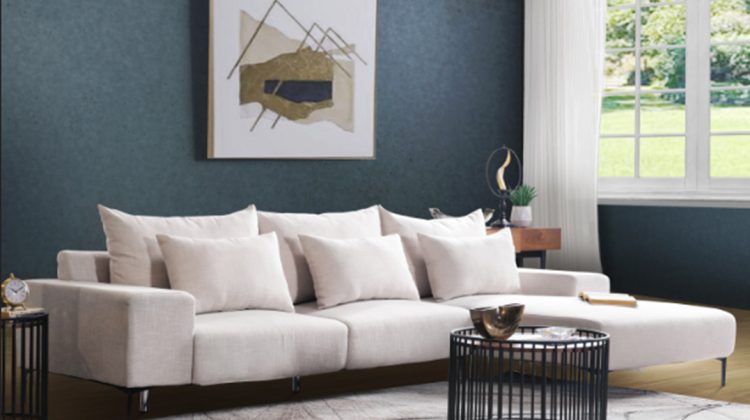
The modern sofa has come a long way from its humble beginnings as a simple piece of furniture for seating. Today, it stands as an icon of contemporary interior design, offering a harmonious fusion of form and function. This evolution has not only transformed the aesthetics of our living spaces but has also revolutionized the way we experience comfort and style in our homes.
From Tradition to Innovation
In order to appreciate the journey of the modern sofa, it’s essential to glimpse into its historical roots. Traditional sofas were often bulky and ornate, adorned with intricate carvings and heavy fabrics. They served as symbols of status and were typically reserved for formal living areas.
However, as society’s needs and design sensibilities evolved, so did the sofa. The mid-20th century ushered in a revolution in furniture design, with iconic designers like Charles and Ray Eames, Mies van der Rohe, and Florence Knoll leading the charge. They championed clean lines, minimalism, and functionality, laying the foundation for the modern sofa we know today.
Embracing Minimalism
One of the defining characteristics of modern sofas is their embrace of minimalism. Clean, uncluttered lines, and a focus on simplicity create a sense of openness and spaciousness in a room. This minimalist aesthetic not only enhances the visual appeal but also serves a practical purpose in smaller living spaces, where maximizing every square foot is crucial.
Versatile Design
Modern sofas are celebrated for their versatility. They are no longer confined to a single room but are adaptable to various living spaces. Sectional sofas, for instance, can be rearranged to fit different room layouts, while sofa beds serve a dual purpose, providing both seating and a comfortable sleeping solution for guests.
Materials Matter
The choice of materials in modern sofa design is as crucial as the design itself. Sofas are crafted from a wide range of materials, from leather and fabric to sustainable and eco-friendly options. These materials not only contribute to the overall aesthetic but also affect the sofa’s durability and comfort.
Innovative Features
Advancements in technology have brought innovation to modern sofas. Many contemporary sofas are equipped with smart features, such as built-in USB ports, wireless charging, and reclining mechanisms. These features enhance the functionality of the sofa, making it a hub for entertainment and relaxation.
Customization and Personalization
One of the most exciting aspects of modern sofa design is the ability to customize and personalize. Buyers can choose from an array of fabrics, colors, and configurations to match their unique tastes and requirements. This level of personalization ensures that your sofa is a true reflection of your style.
Sustainability and Eco-Consciousness
As environmental concerns become increasingly significant, many modern sofa manufacturers prioritize sustainability. Eco-friendly materials, responsible production practices, and recyclability are essential considerations in the design and manufacturing of modern sofas.
Conclusion
The evolution of modern sofas reflects not only changing design sensibilities but also the evolving needs and values of contemporary living. From its traditional roots to its current status as a symbol of style and comfort, the modern sofa continues to shape our homes and redefine our living spaces. With its emphasis on form, function, and versatility, the modern sofa is a testament to the timeless marriage of aesthetics and practicality in interior design. Whether you seek a sleek and minimalistic look or a cozy and functional piece, the modern sofa offers a wide array of options to suit your lifestyle and preferences.

Leave a Reply